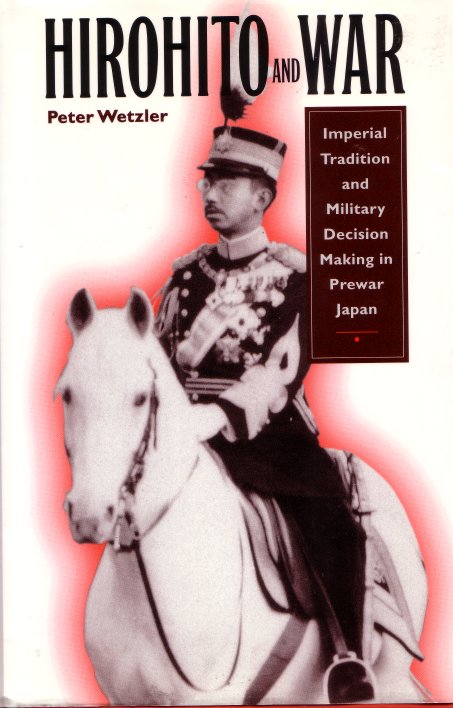
Hirohito and War

One of the left-over problems from World War II is the level of responsibility for the war and what happened during it that should be born by Emperor Hirohito. The US chose not to have the Emperor arrested or tried for war crimes, and ever since then there has been an argument about how involved the emperor was in the day-to-day activities or the war, or if he was just a figurehead that didn't factor into it until it came time for surrender.
There is little doubt that his book is one of the ones that holds that the emperor was quite aware of what was going on and was active in the decision-making processes.
I will, as usual, note only the parts that I think are the most interesting. The entire book is quite good, though.
”The Showa emperor shared in the collective responsibility for the war, and not merely in a formal legal sense. He individually did not and could not approve starting a war with China, the United States, or anyone else, but he w as actively involved in the decision to go to war, reached in the fall of 1941, as well as in many other political and military decisions before the attack on Pearl Harbor.”
Documents from the time that have been studied indicate “...the emperor was regularly and extensively informed about military planning for at least six years before the attack on Pearl Harbor. Second, he was given a detailed explanation of the plan to attack Pearl Harbor by surprise one moth before its execution. Third, he did not question military plans in imperial conferences because they were top secret and because he demanded the opportunity to suggest revisions in private before official approval.”
”On 5 November 1941 the emperor approved the 'Imperial Navy Operations Plan for the War Against America, Great Britain, and the Netherlands.' On 16 April 1942 he approved the 'Second State of Operations for the Greater East Asia War, Imperial Navy Operations Plan.' On 25 March 1943 Hirohito approved the 'Third State of Operations for the Greater East Asia War.'”
The book notes that the Navy Chief of Staff explained the Pearl Harbor attack to the emperor in an audience on November 3, 1941.
After the war, “The Americans wanted to use the emperor for purposes that made questions of war guilt irrelevant-to ensure the obedience of the people, to make the occupation easier; to contain communism in Japan.”
In relation to the takeover of Manchura in 1931-1932, evidence shows that the emperor was opposed to the takeover, but that his opposition was inconsistent.
It is also quite possible that the emperor did not have all the facts on what was going on in Manchuria since the Army wasn't exactly keen on following orders or keeping the government informed of what it was doing.
Main Index
Japan main page
Japanese-American Internment Camps index page
Japan and World War II index page
|